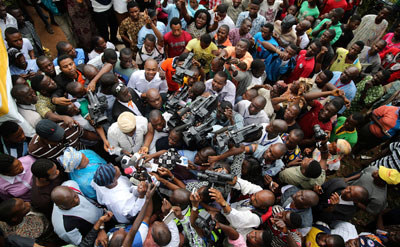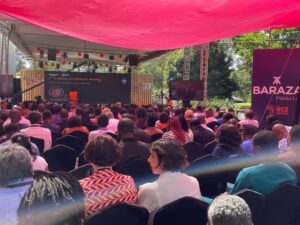Chairman, Sobi FM Chapel, Nigeria Union of Journalists (NUJ) Kwara Council, Dare Akogun writes on the workplace challenges faced by media professionals.
In the bustling world of journalism, those who fill our screens and newspapers with insightful views, breaking news, and challenging narratives often face a paradox of challenges that are seldom discussed.
As they shed light on issues in society, their struggles within the media industry get overlooked. One such issue is the condition of service in the private media sector – a realm where the demand for regular promotions and salary increments is often dismissed.
“Why are we, the private media, not treated like our colleagues in the civil service especially when discussion around minimum wage is held?” This is a question that has long been on the minds of many media professionals. After years of dedicated service, the expectation for career progression, and salary growth is not an unreasonable one. However, the common excuse that the private media is not akin to government service often bars them from such benefits.
The irony is palpable. Media organizations, the same institutions that hold the government accountable if they do not meet the demands of their workers, often fail to meet the needs of their staff. Some media houses are guilty of withholding salaries and entitlements, citing financial difficulties or other weather-beaten administrative excuses.
One crucial question that arises is, why taxes and pensions are deducted from staff salaries, yet are not remitted to the appropriate agencies. In such cases, media professionals not only lose out on their hard-earned money but also face potential future financial insecurity. It’s a violation of their rights, creating a shadow over their dedication and commitment to their profession.
Speaking of rights, it’s disconcerting to note that some media organizations deny their staff the basic right to belong to media unions or associations. Freedom of association, a fundamental human right recognized by international law, is curtailed, leaving these professionals without a platform to voice their concerns or negotiate improvements in their working conditions.
These conditions paint a grim picture of the challenges faced by media professionals in their workplaces. The industry that prides itself on unveiling truths, promoting transparency, and championing rights often fails to uphold these same values for its staff.
This, the NUJ, which is the union, recognised, and registered as an umbrella body for all practising journalists in Nigeria, needs to address this Paradox.
One of the main objectives of the union in Article 2 of the NUJ constitution is (a) To safeguard the freedom of the press and the freedom of journalists to engage in legitimate professional activities; (c) To encourage the participation of members in decision-making processes in the union and their places of work in particular and society in general; (d) To protect and advance the socio-economic interests of the society and such other objectives as are lawful and are consistent with the spirit and practice of journalism; (f) To negotiate conditions of service and establish welfare schemes for members; (i) To collaborate with organizations with similar objectives to defend the fundamental rights of Nigeria citizens and society at large.
Media organizations need to be held accountable, not just for their role in society as the fourth pillar of democracy, but also as employers.
They must work toward creating an environment where their staff are adequately compensated, their rights are protected, and their contributions are valued.
As we continue to rely on the private media to inform us, provoke us, and challenge us, it’s only fair that the individuals behind the stories get their fair share of recognition and reward. Because without them, the stories, the insights, and the narratives we take for granted would simply cease to exist.
Ignoring these issues will only serve to weaken the industry’s foundation. It’s high time we turned the light on the conditions of service in the private media sector and started treating these stewards of truth with the respect and fairness they deserve.






